Maharana Pratap proclaims Dharma-yuddha against Akbar
In the year 1568, Mughal emperor Akbar invaded the state of Chittod and killed scores of Rajput males and females. After winning the battle at Chittod he returned to Delhi. The king of Mewad, Udaysinh died in the battle. His son, Maharana Pratap was furious and he vowed to avenge Udaysinh’s death. He proclaimed a Dharma-yuddha (Battle for righteousness) against Akbar. In 1572 he was crowned the King of Mewad.
Akbar’s plan for defeating Maharana Pratap
By this time, Akbar had captured many kingdoms and had made the Mughal base in Delhi very strong. Maharana Pratap was the only warrior who could fight against the might of Akbar. Akbar was aware of the threat that he faced from the valiant Maharana Pratap. So he planned to defeat Maharana and save his kingdom from the looming threat. To invade Maharana’s kingdom, Akbar sent his Chief General, Raja Mansing, along with a mighty army comprising of 1 lakh cavalry, new guns, arrows and innumerable elephants, horses, chariots and foot soldiers. At the same time, Maharana Pratap’s army comprised of only three thousand cavalry soldiers. Very shrewdly, Maharana Pratap decided to fight this mighty Mughal army by taking refuge in the inaccessible ‘Haldi Ghati’ region of the Aravali mountain range. As Mansing had a huge army, he attacked Maharana Pratap from all for sides at the same time. Maharana’s soldiers did not lose heart and fought valiantly and successfully kept the invading army at bay.
Fighting to the last breath
In this battle, the Mughal soldiers were so exhausted that they could no longer offer any resistance to Maharana Pratap’s army. Seeing that it was not possible to capture Maharana Pratap, Mansing backed away and returned to Delhi.
After this battle, Maharana Pratap once again formed an army and was prepared for war. Thereafter, he fought three battles with Akbar. In these three battles, Akbar could neither defeat nor capture Maharana Pratap. During these battles, Maharana Pratap had to sometimes live in the forest, despite being a king; but that did not deter him from his goal. He faced the enemy courageously. Finally, in the year 1598 A.D. he passed away due to a prolonged illness.
– S. G. Shevade (Bharatiya Sanskruti)

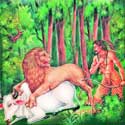 Emperor Dileep, who set a high ideal for Gourakshan !
Emperor Dileep, who set a high ideal for Gourakshan !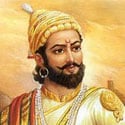 An unusual event in Shivaji Maharaj’s life
An unusual event in Shivaji Maharaj’s life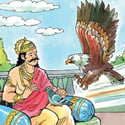 Shibi Raja (King Shibi)
Shibi Raja (King Shibi)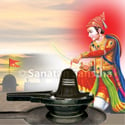 Shivaji Maharaj : Founder and an ideal ruler of Hindavi Swarajya
Shivaji Maharaj : Founder and an ideal ruler of Hindavi Swarajya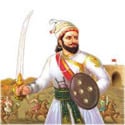 Shivaji’s offering
Shivaji’s offering